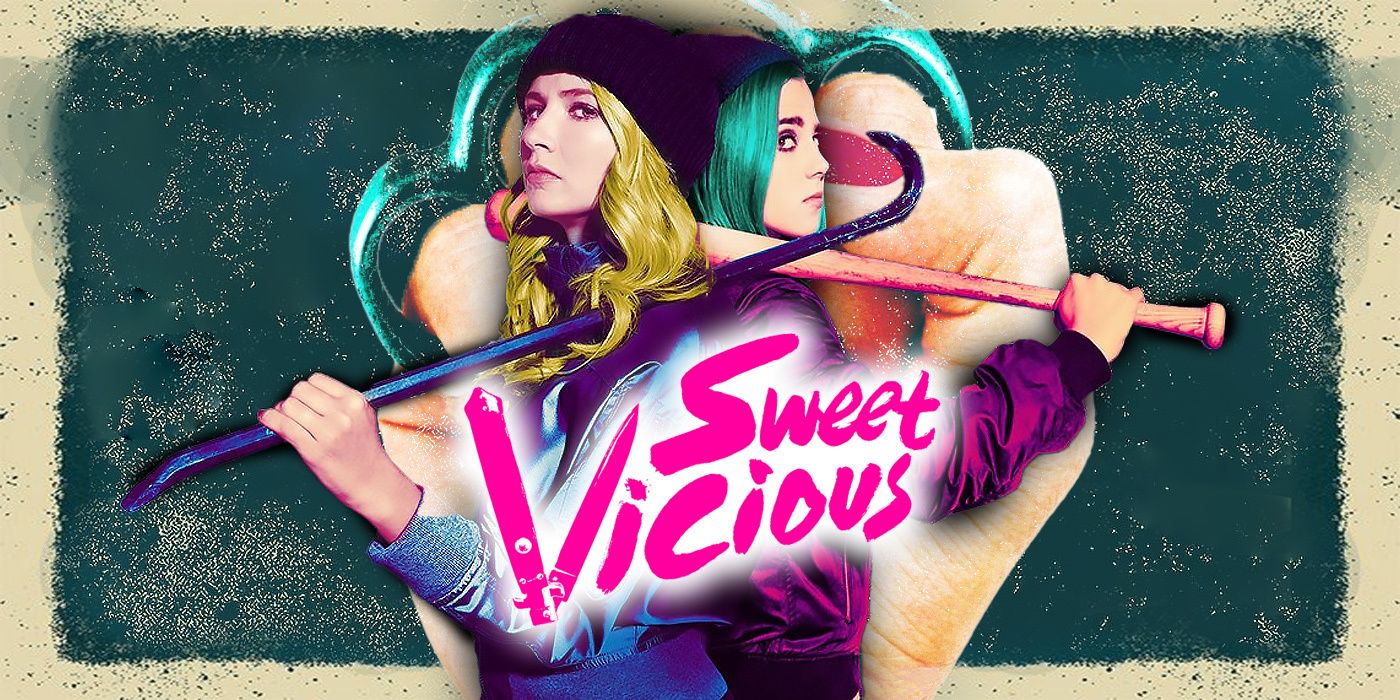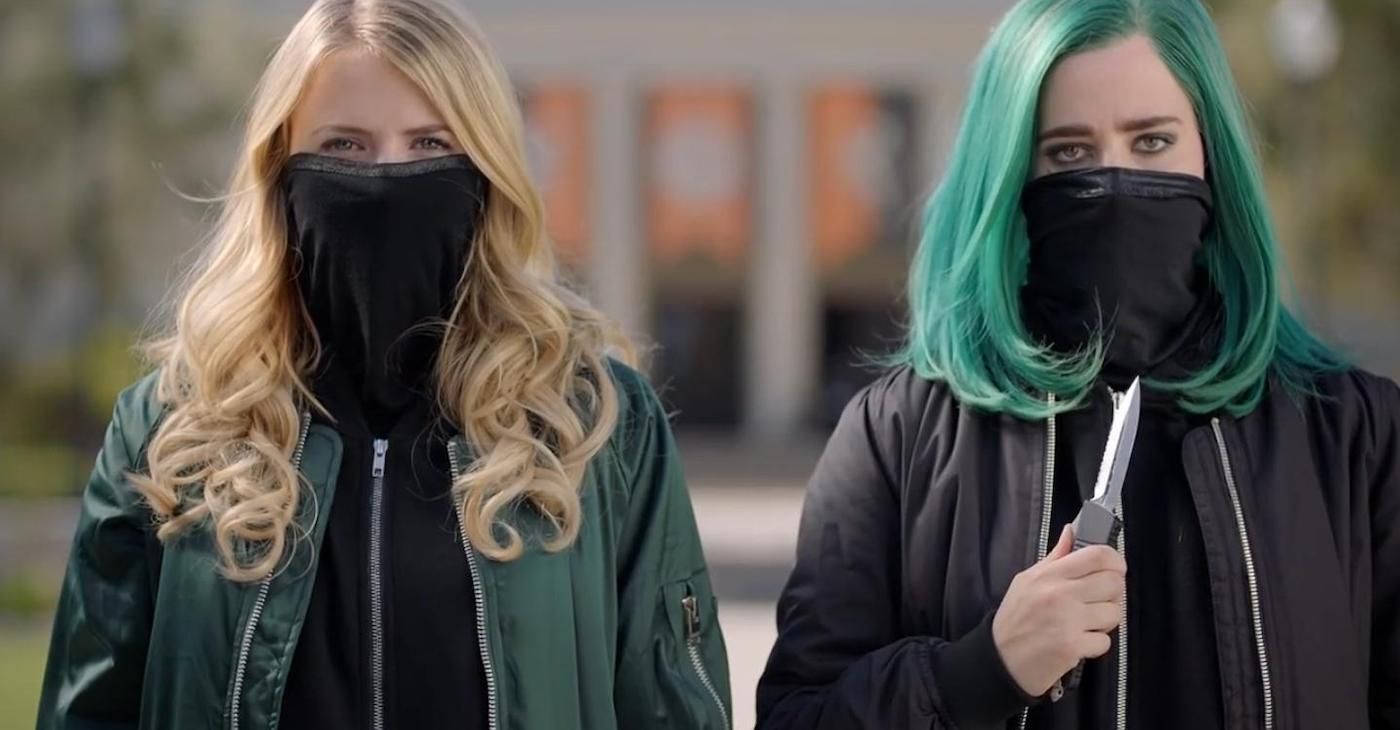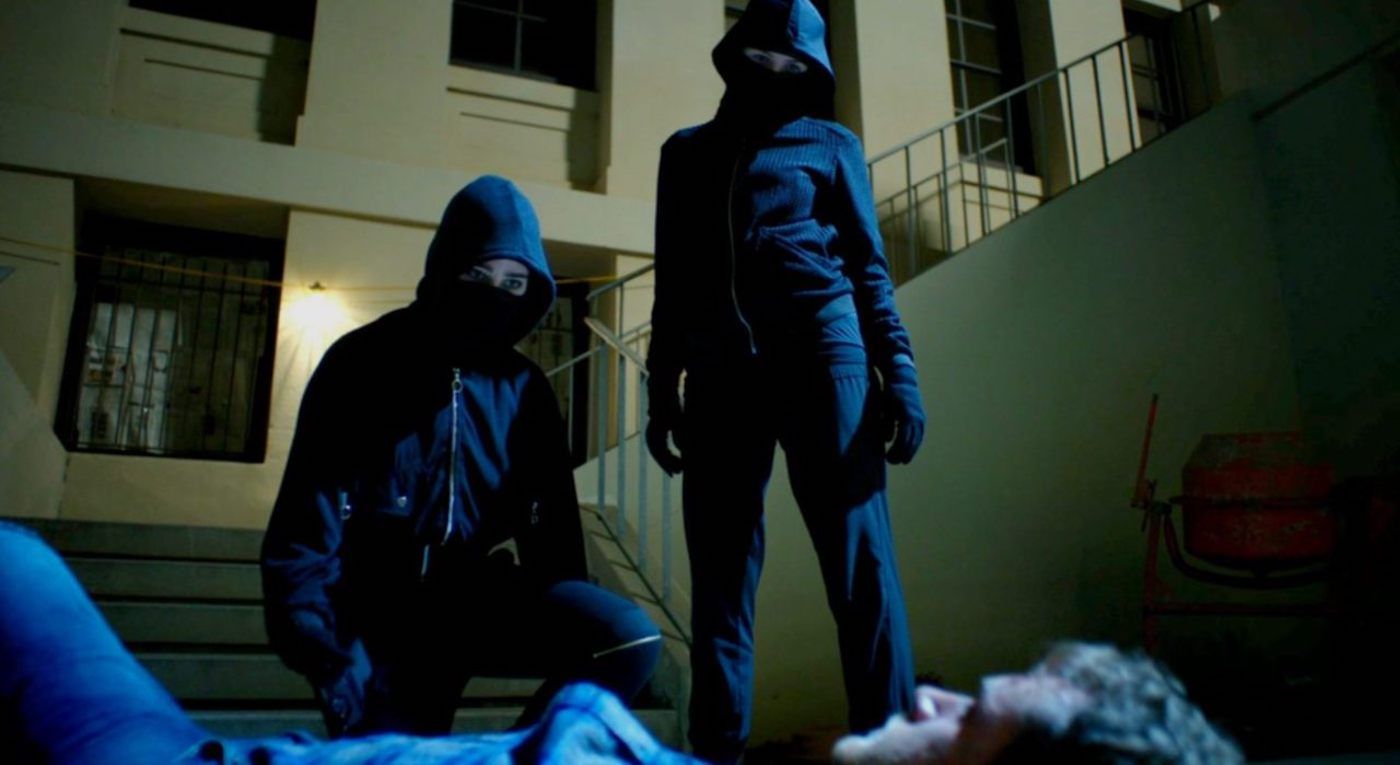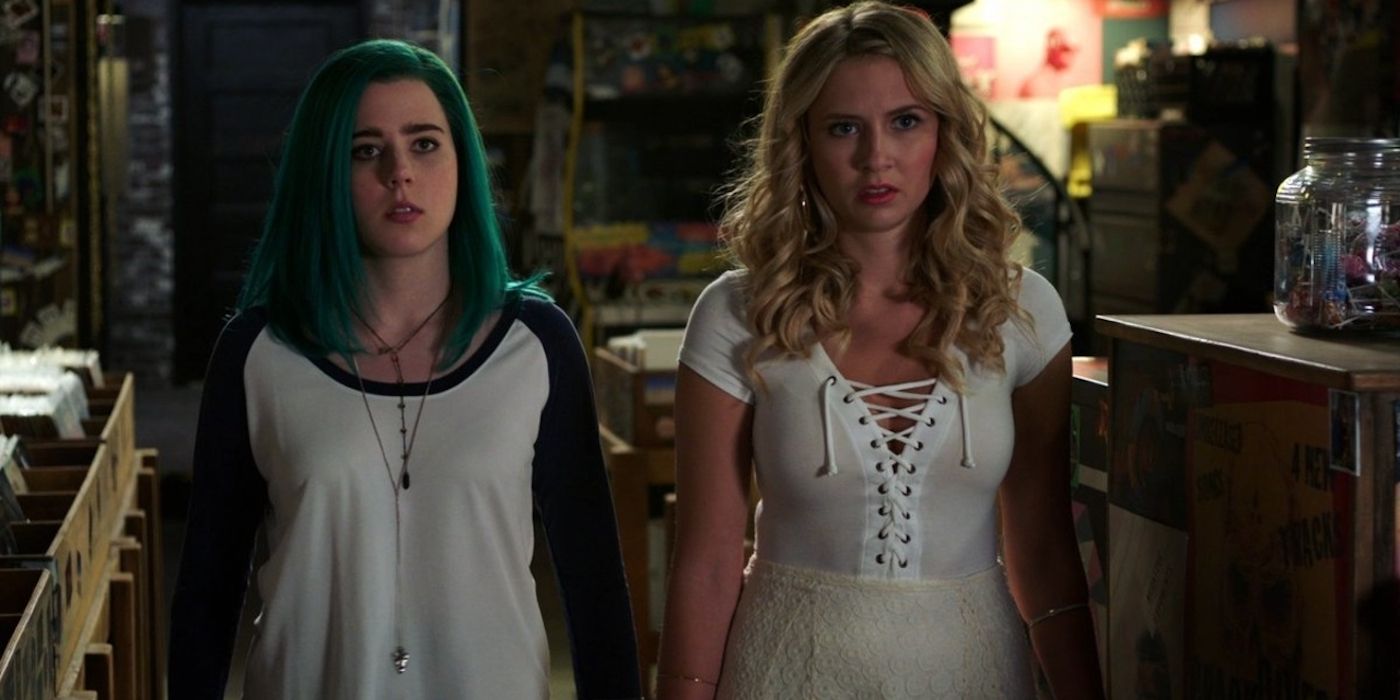[TW: This article discusses the general topic of sexual assault and how it is portrayed in Sweet/Vicious.]
At the end of 2016, right before #MeToo became a mainstream movement, a show premiered on MTV called Sweet/Vicious. The series follows a pair of college students who become masked vigilantes to fight against sexual assault on campus. With a 100% rating on Rotten Tomatoes and a kickass vigilante duo at the helm, the series deserves to be recognized alongside the other on-screen vigilantes made popular at the time by the CW’s Arrowverse and Marvel’s Netflix series. Sweet/Vicious deserves another look because of how effortlessly series creator and lead writer Jennifer Kaytin Robinson subverts expectations of both superhero/vigilante and rape-revenge narratives.
Until recently, most on-screen heroes and vigilantes have been overwhelmingly male. Comic-book characters that walk the line between hero and vigilante, like Batman, Oliver Queen (Stephen Amell) in Arrow, and Matt Murdock (Charlie Cox) in Daredevil, dominate that space and therefore define the normative characteristics for those roles. Things like being muscular and masculine, having a deep and/or raspy voice, being skilled at hand-to-hand combat, and preferring to work alone are defining traits that influence a person’s idea of what a vigilante should or shouldn’t look like. These characters also have the added baggage of fan expectations and years of comic-book canon and lore to contend with. Without this, the writers of Sweet/Vicious are able to make their vigilante duo more grounded and realistic than their predecessors.
Instead of feeling constrained by ideas of what a vigilante show “should” look like, Sweet/Vicious does its own thing, and excels at it. The series is set on the Darlington University campus and surrounding college town rather than a large city like Arrow or Daredevil. The titular vigilante duo is comprised of students Jules (Eliza Bennett), a preppy sorority sister who is a sexual assault survivor trained in hand-to-hand combat, and Ophelia (Taylor Dearden), a weed-smoking tech genius who is a secret softie but also can’t be bothered to go to class.
Rather than fighting organized crime or a larger-than-life villain, the “big bad” of the series is the systemic injustice that women face when sexually assaulted in college. When women report sexual assault, they are often met with a lack of empathy when they go to school officials or the police, their character challenged as their testimony is picked apart. These same institutional parties often refuse to take action against accused rapists and sweep the issue under the rug instead of addressing it. And when survivors are brave enough to go public, they are often dismissed as attention-seeking or even blamed for the assault themselves. Survivors at Darlington are unable to find justice or peace of mind on campus, so Jules and Ophelia take matters into their own hands by physically attacking rapists.
Rape-revenge narratives tend to be somber, brutal, and hard to watch. There’s some catharsis in watching a victim get justice by ruthlessly hunting down her rapist and any accomplices, but ultimately the audience is still left feeling hopeless. What sets Sweet/Vicious apart, however, is its ability to inject a hopeful and fun energy into such a heavy and trauma-filled narrative without sensationalizing or belittling what sexual assault survivors go through.
At the beginning of the series, Jules is struggling to reconcile her new vigilante life with the person she was before she was assaulted. She’s missing sorority events, on academic probation, and lying to her best friend, Kennedy (Aisha Dee). When she meets Ophelia, however, that starts to change. Because Ophelia discovered her secret identity, Jules can be 100% herself with someone for the first time since her assault. Her walls start to come down, and she finds a way to let others back into her life. Processing trauma isn’t a one-size-fits-all thing, so it’s important that Sweet/Vicious is able to show both the ups and downs of Jules’ journey. The little moments of joy are just as important to see as her and Ophelia kicking ass. It proves that Jules is a whole, fully-realized person rather than just a vessel for on-screen trauma.
The series ends on a hopeful note, even though it’s clear that the story was meant to continue beyond Season 1. Jules is finally able to take down her rapist, the star quarterback Nate (Dylan McTee), in an incredibly public way that doesn’t involve punching him in the face. Jules and Ophelia launch a Sweet/Vicious website so that people have a direct line to ask them for help. Ophelia’s friend, Harris (Brandon Mychal Smith), is undercover in the District Attorney’s office to uncover cases that have been purposely mishandled. The overall theme of the final episode is that no matter how isolating the trauma of sexual assault can feel, there are people out there that care about you and want to help. While the systemic issues are still at large, it’s clear that Jules and Ophelia have started to change the campus atmosphere for the better. With a growing number of students on their side, they could have tackled some of these issues had the series been renewed for another season.
Jules and Ophelia are an odd pair who do questionable things in the name of justice, but their story is just as important now as it was when the show premiered in 2016. Nothing has changed systematically in the last half-decade to make their mission against sexual assault less realistic or necessary. With the critical success of Emerald Fennell’s Promising Young Woman in 2021, it’s clear that there is an audience for rape-revenge narratives crafted by women and told through the female lens. With Sweet/Vicious, Jennifer Kaytin Robinson created a show that is bold, unique, and worthy of the same praise as Promising Young Woman. “Low ratings” may have claimed Sweet/Vicious too soon, but the series is 10 episodes of genre-subverting joy that deserves to be revisited.




